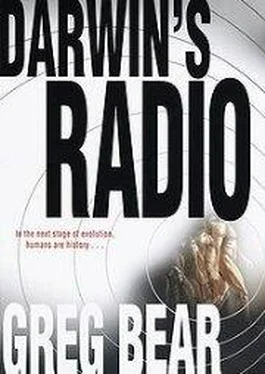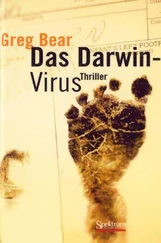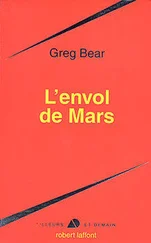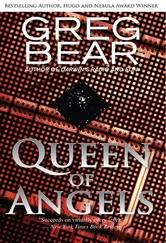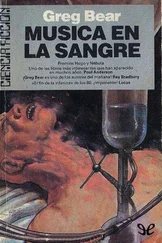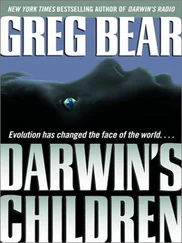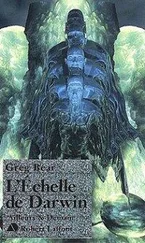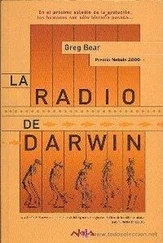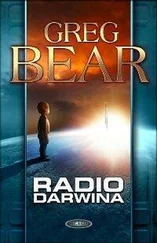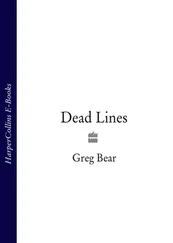“Want to just take a nap? There are beers in the refrigerator—”
“Budweiser?”
Mitch grinned.
“I’ll take one,” Kaye said. He let go of her and rummaged in the refrigerator.
“Damn. There must have been an outage. Everything in the freezer melted…” A cool sour smell wafted from the kitchen. “The beer’s still good, though.” He brought her a bottle and deftly unscrewed the cap. She took it and sipped it. Barely any flavor. No relief.
“I need to use the bathroom,” Kaye said. She felt numb, far from anything that mattered. She carried her purse into the bathroom and removed the pregnancy kit. It was sweet and simple: two drops of urine on a test strip, blue if positive, pink if negative. Results in ten minutes.
Suddenly, Kaye was desperate to know.
The bathroom was immaculately clean. “What can I do for him?” she asked herself. “He lives his own life here.” But she put that aside and dropped the lid on the toilet to sit.
In the living room, Mitch turned on the TV Through the old solid-pine door Kaye heard muffled voices, a few stray words.”…also injured in the blast was the secretary—”
“Kaye!” Mitch called.
She covered the strip with a Kleenex and opened the door.
“The president,” Mitch said, his face contorted. He pounded his fists at nothing. “I wish I’d never turned the damned thing on!”
Kaye stood in the living room before the small television, stared at the announcer’s head and shoulders, her moving lips, the run of mascara from one eye. “The count so far is seven dead, including the governors of Florida, Mississippi, and Alabama, the president, a Secret Service agent, and two not yet identified. Among the survivors are the governors of New Mexico and Arizona, director of the Herod’s Taskforce Mark Augustine, and Frank Shawbeck of the National Institutes of Health. The vice president was not in the White House at this time—”
Mitch stood beside her, shoulders slumped.
“Where was Christopher?” Kaye asked in a small voice.
“No explanation has yet been given for how a bomb could have been smuggled into the White House through such intense security. Frank Sesno is outside the White House now.”
Kaye pushed free of Mitch’s arm. “Excuse me,” she said, patting his shoulder nervously. “Bathroom.”
“Are you all right?”
“I’m fine.” She shut the door and locked it, took a deep breath, and lifted away the Kleenex. Ten minutes had passed.
“Are you sure you’re all right?” Mitch called outside the door.
Kaye held the strip up to the light, looked at the two test patches. The first test showed blue. The second test showed blue. She read the instructions again, the color comparisons, and leaned an elbow against the door, feeling dizzy.
“It’s done,” she said softly. She straightened and thought, This is a horrible time. Let it wait. Let it wait if you can possibly wait.
“Kaye!” Mitch sounded close to panic. He needed her, needed some reassurance. She leaned on the sink, could barely stay upright, she felt such a mix of horror and relief and awe at what they had done, at what the world was doing.
She opened the door and saw tears in Mitch’s eyes.
“I didn’t even vote for him!” he said, his lips trembling.
Kaye hugged him tightly. That the president was dead was significant, important, it mattered, but she could not feel it yet. Her emotions were elsewhere, with Mitch, with his mother and father, with her own absent mother and father; she felt even a mild concern for herself, but curiously enough, no real connection with the life inside her.
Not yet.
This was not the actual baby.
Not yet.
Don’t love it. Don’t love this one. Love what it does, what it carries.
Quite against her will, as she held Mitch and patted his back, Kaye fainted. Mitch carried her into the bedroom, brought a cold cloth.
She floated for a while in closed darkness, then became aware of a dryness in her mouth. She cleared her throat, opened her eyes.
She looked up at her husband, tried to kiss his hand as it passed the cloth over her cheeks and chin.
“Such a fool,” she said.
“Me?”
“Me. I thought I’d be strong.”
“You are strong,” Mitch said.
“I love you,” she said, and that was all she could manage.
Mitch saw that she was sound asleep and pulled the blanket over her on the bed, turned out the light, and returned to the living room. The apartment seemed so different now. Summer twilight glowed beyond the windows, casting a fairy-tale pallor over the opposite wall. He sat in the worn armchair before the TV, its muted sound still clear in the quiet room.
“Governor Harris has declared a state of emergency and called out National Guard troops. A curfew of seven P.M. has been declared for weekdays, five P.M. for Saturday and Sunday, and if martial law is declared at the federal level, we presume by the vice president, as seems very likely, then throughout the state, no groups will be allowed to gather in public places without special permission from the Emergency Action Office in each community. This official state of emergency is open-ended, and is in part, so officials say, a response to the situation in the nation’s capital, and in part an attempt to bring under control the extraordinary and continuing unrest in Washington state itself…”
Mitch tapped the plastic test strip on his chin. He switched channels just to have a feeling of control.
“…is dead. The president and five out often visiting state governors were killed this morning in the situation room of the White House—”
And again, punching the button on the small remote.
“…The governor of Alabama, Abraham C. Darzelle, leader of the so-called States’ Revolt movement, embraced the president of the United States just before the explosion. Both the governors of Alabama and Florida, and the president, were blown apart by the blast—”
Mitch turned the TV off. He returned the plastic strip to the bathroom and went to lie beside Kaye. He did not pull the covers back and did not undress, to avoid disturbing her. Kicking off his shoes, he curled up with one leg laid gently over her blanketed thighs, and pushed his nose against her short brown hair. The smell of her hair and scalp was more soothing than any drug.
For far too short a moment, the universe once again became small and warm and entirely sufficient.
JUNE
Kaye arranged her papers on Mitch’s desk and picked up the manuscript for The Queen’s Library. Three weeks ago, she had decided to write a book about SHEVA, modern biology, all she felt the human race might need to know in the coming years. The title referred to her metaphor for the genome, with all of its ferment and movable elements and self-interested players, rendering service to the genome queen with one side of their nature, selfishly hoping to be installed in the Queen’s Library, the DNA; and sometimes putting on another face, another role, more selfish than useful, parasitic or predatory, causing trouble or even disaster…A political metaphor that seemed perfectly apt now.
In the past two weeks, she had written over a hundred and sixty pages on her laptop computer, printing them out on a portable printer, partly as a way of getting her thoughts together before the convention.
And to pass the time. The hours sometimes drag when Mitch is away.
She knocked the papers together on the wood, satisfied by the solid thunk they made, then placed them before the picture of Christopher Dicken that stood in a small silver frame near a portrait of Sam and Abby. The last picture in her box of personal items was a black-and-white glossy of Saul, taken by a professional photographer on Long Island. Saul appeared able, grinning, confident, wise. They had sent copies of that picture with the business prospectus for EcoBacter to venture capital firms over five years ago. An age.
Читать дальше
Конец ознакомительного отрывка
Купить книгу
